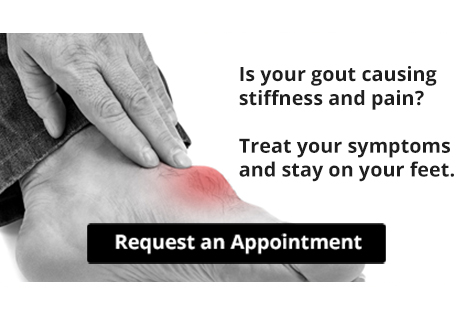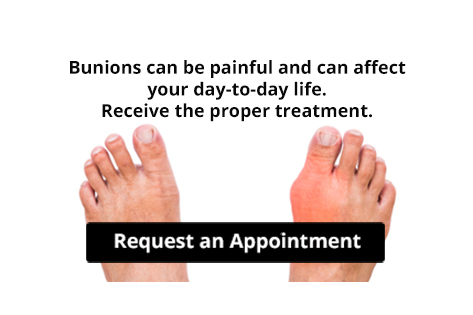Connect With Us
Items filtered by date: November 2019
Gout Pain Can Be Managed
Gout Pain Can Be Managed
Strategies That Help To Prevent Falling
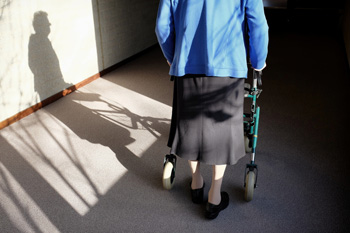 Research has indicated that it is beneficial to implement strategies that can be helpful in preventing falling. This is crucial as the aging process occurs, and may be beneficial in avoiding painful injuries. When gentle exercises are frequently performed, the body may become stronger, and falling may be prevented. Additionally, taking vitamin D on a daily basis may help to minimize a bone density deficiency. Other ways to prevent falling may include removing any loose carpeting in the living area, and installing grab bars in the toilet and shower area. Many elderly patients are aware of the importance of regularly checking their vision, which helps to determine how well objects are seen that may be in their way of walking. If you would like additional information about how falling can affect the feet, please speak with a podiatrist.
Research has indicated that it is beneficial to implement strategies that can be helpful in preventing falling. This is crucial as the aging process occurs, and may be beneficial in avoiding painful injuries. When gentle exercises are frequently performed, the body may become stronger, and falling may be prevented. Additionally, taking vitamin D on a daily basis may help to minimize a bone density deficiency. Other ways to prevent falling may include removing any loose carpeting in the living area, and installing grab bars in the toilet and shower area. Many elderly patients are aware of the importance of regularly checking their vision, which helps to determine how well objects are seen that may be in their way of walking. If you would like additional information about how falling can affect the feet, please speak with a podiatrist.
Preventing falls among the elderly is very important. If you are older and have fallen or fear that you are prone to falling, consult with one of our podiatrists from The Podiatry Center, PC. Our doctors will assess your condition and provide you with quality advice and care.
Every 11 seconds, an elderly American is being treated in an emergency room for a fall related injury. Falls are the leading cause of head and hip injuries for those 65 and older. Due to decreases in strength, balance, senses, and lack of awareness, elderly persons are very susceptible to falling. Thankfully, there are a number of things older persons can do to prevent falls.
How to Prevent Falls
Some effective methods that older persons can do to prevent falls include:
- Enrolling in strength and balance exercise program to increase balance and strength
- Periodically having your sight and hearing checked
- Discuss any medications you have with a doctor to see if it increases the risk of falling
- Clearing the house of falling hazards and installing devices like grab bars and railings
- Utilizing a walker or cane
- Wearing shoes that provide good support and cushioning
- Talking to family members about falling and increasing awareness
Falling can be a traumatic and embarrassing experience for elderly persons; this can make them less willing to leave the house, and less willing to talk to someone about their fears of falling. Doing such things, however, will increase the likelihood of tripping or losing one’s balance. Knowing the causes of falling and how to prevent them is the best way to mitigate the risk of serious injury.
If you have any questions, please feel free to contact our office located in Millburn, NJ. We offer the newest diagnostic and treatment technologies for all your foot care needs.
Read more about Falls PreventionStrategies That Help To Prevent Falling
 Research has indicated that it is beneficial to implement strategies that can be helpful in preventing falling. This is crucial as the aging process occurs, and may be beneficial in avoiding painful injuries. When gentle exercises are frequently performed, the body may become stronger, and falling may be prevented. Additionally, taking vitamin D on a daily basis may help to minimize a bone density deficiency. Other ways to prevent falling may include removing any loose carpeting in the living area, and installing grab bars in the toilet and shower area. Many elderly patients are aware of the importance of regularly checking their vision, which helps to determine how well objects are seen that may be in their way of walking. If you would like additional information about how falling can affect the feet, please speak with a podiatrist.
Research has indicated that it is beneficial to implement strategies that can be helpful in preventing falling. This is crucial as the aging process occurs, and may be beneficial in avoiding painful injuries. When gentle exercises are frequently performed, the body may become stronger, and falling may be prevented. Additionally, taking vitamin D on a daily basis may help to minimize a bone density deficiency. Other ways to prevent falling may include removing any loose carpeting in the living area, and installing grab bars in the toilet and shower area. Many elderly patients are aware of the importance of regularly checking their vision, which helps to determine how well objects are seen that may be in their way of walking. If you would like additional information about how falling can affect the feet, please speak with a podiatrist.
Preventing falls among the elderly is very important. If you are older and have fallen or fear that you are prone to falling, consult with one of our podiatrists from The Podiatry Center, PC. Our doctors will assess your condition and provide you with quality advice and care.
Every 11 seconds, an elderly American is being treated in an emergency room for a fall related injury. Falls are the leading cause of head and hip injuries for those 65 and older. Due to decreases in strength, balance, senses, and lack of awareness, elderly persons are very susceptible to falling. Thankfully, there are a number of things older persons can do to prevent falls.
How to Prevent Falls
Some effective methods that older persons can do to prevent falls include:
- Enrolling in strength and balance exercise program to increase balance and strength
- Periodically having your sight and hearing checked
- Discuss any medications you have with a doctor to see if it increases the risk of falling
- Clearing the house of falling hazards and installing devices like grab bars and railings
- Utilizing a walker or cane
- Wearing shoes that provide good support and cushioning
- Talking to family members about falling and increasing awareness
Falling can be a traumatic and embarrassing experience for elderly persons; this can make them less willing to leave the house, and less willing to talk to someone about their fears of falling. Doing such things, however, will increase the likelihood of tripping or losing one’s balance. Knowing the causes of falling and how to prevent them is the best way to mitigate the risk of serious injury.
If you have any questions, please feel free to contact our office located in Millburn, NJ . We offer the newest diagnostic and treatment technologies for all your foot care needs.
What are Orthotics?
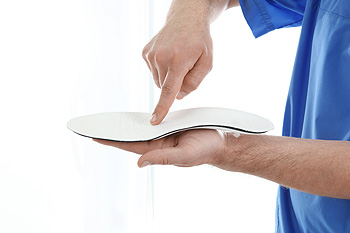 Many patients who experience specific foot conditions may benefit from wearing orthotics. They are defined as devices that are inserted into shoes, and are known to improve a variety of foot ailments. Research has indicated that there are three types of orthotics. First, there are inserts, which are created for certain foot conditions referred to as custom orthotics. Secondly, there are orthotics that are found in retail stores, and these may provide adequate support for mild foot ailments. A brace that can help to control ankle movement and may offer additional support to the foot is referred to as an ankle-foot orthotic. If you are interested in using orthotics to find relief from certain foot conditions, it is strongly advised that you seek the counsel of a podiatrist who can properly assist you.
Many patients who experience specific foot conditions may benefit from wearing orthotics. They are defined as devices that are inserted into shoes, and are known to improve a variety of foot ailments. Research has indicated that there are three types of orthotics. First, there are inserts, which are created for certain foot conditions referred to as custom orthotics. Secondly, there are orthotics that are found in retail stores, and these may provide adequate support for mild foot ailments. A brace that can help to control ankle movement and may offer additional support to the foot is referred to as an ankle-foot orthotic. If you are interested in using orthotics to find relief from certain foot conditions, it is strongly advised that you seek the counsel of a podiatrist who can properly assist you.
If you are having discomfort in your feet and would like to try orthotics, contact one of our podiatrists from The Podiatry Center, PC. Our doctors can provide the care you need to keep you pain-free and on your feet.
What Are Orthotics?
Orthotics are inserts you can place into your shoes to help with a variety of foot problems such as flat feet or foot pain. Orthotics provide relief and comfort for minor foot and heel pain but can’t correct serious biomechanical problems in your feet.
Over-the-Counter Inserts
Orthotics come in a wide variety of over-the-counter inserts that are used to treat foot pain, heel pain, and minor problems. For example, arch supports can be inserted into your shoes to help correct overarched or flat feet, while gel insoles are often used because they provide comfort and relief from foot and heel pain by alleviating pressure.
Prescription Orthotics
If over-the-counter inserts don’t work for you or if you have a more severe foot concern, it is possible to have your podiatrist prescribe custom orthotics. These high-quality inserts are designed to treat problems such as abnormal motion, plantar fasciitis, and severe forms of heel pain. They can even be used to help patients suffering from diabetes by treating foot ulcers and painful calluses and are usually molded to your feet individually, which allows them to provide full support and comfort.
If you are experiencing minor to severe foot or heel pain, it’s recommended to speak with your podiatrist about the possibilities of using orthotics. A podiatrist can determine which type of orthotic is right for you and allow you to take the first steps towards being pain-free.
If you have any questions please contact our office located in Millburn, NJ. We offer the newest diagnostic and treatment technologies for all your foot and ankle needs.
Read more about Ankle Foot Orthotics for AthletesWhat are Orthotics?
 Many patients who experience specific foot conditions may benefit from wearing orthotics. They are defined as devices that are inserted into shoes, and are known to improve a variety of foot ailments. Research has indicated that there are three types of orthotics. First, there are inserts, which are created for certain foot conditions referred to as custom orthotics. Secondly, there are orthotics that are found in retail stores, and these may provide adequate support for mild foot ailments. A brace that can help to control ankle movement and may offer additional support to the foot is referred to as an ankle-foot orthotic. If you are interested in using orthotics to find relief from certain foot conditions, it is strongly advised that you seek the counsel of a podiatrist who can properly assist you.
Many patients who experience specific foot conditions may benefit from wearing orthotics. They are defined as devices that are inserted into shoes, and are known to improve a variety of foot ailments. Research has indicated that there are three types of orthotics. First, there are inserts, which are created for certain foot conditions referred to as custom orthotics. Secondly, there are orthotics that are found in retail stores, and these may provide adequate support for mild foot ailments. A brace that can help to control ankle movement and may offer additional support to the foot is referred to as an ankle-foot orthotic. If you are interested in using orthotics to find relief from certain foot conditions, it is strongly advised that you seek the counsel of a podiatrist who can properly assist you.
If you are having discomfort in your feet and would like to try orthotics, contact one of our podiatrists from The Podiatry Center, PC. Our doctors can provide the care you need to keep you pain-free and on your feet.
What Are Orthotics?
Orthotics are inserts you can place into your shoes to help with a variety of foot problems such as flat feet or foot pain. Orthotics provide relief and comfort for minor foot and heel pain but can’t correct serious biomechanical problems in your feet.
Over-the-Counter Inserts
Orthotics come in a wide variety of over-the-counter inserts that are used to treat foot pain, heel pain, and minor problems. For example, arch supports can be inserted into your shoes to help correct overarched or flat feet, while gel insoles are often used because they provide comfort and relief from foot and heel pain by alleviating pressure.
Prescription Orthotics
If over-the-counter inserts don’t work for you or if you have a more severe foot concern, it is possible to have your podiatrist prescribe custom orthotics. These high-quality inserts are designed to treat problems such as abnormal motion, plantar fasciitis, and severe forms of heel pain. They can even be used to help patients suffering from diabetes by treating foot ulcers and painful calluses and are usually molded to your feet individually, which allows them to provide full support and comfort.
If you are experiencing minor to severe foot or heel pain, it’s recommended to speak with your podiatrist about the possibilities of using orthotics. A podiatrist can determine which type of orthotic is right for you and allow you to take the first steps towards being pain-free.
If you have any questions please contact our office located in Millburn, NJ . We offer the newest diagnostic and treatment technologies for all your foot and ankle needs.
Are Bunions Affecting Your Everyday Life?
Are Bunions Affecting Your Everyday Life?
Foot Conditions Children May Have
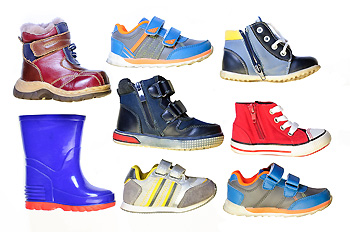 New parents may notice their children are born with flat feet. This is a result of supporting muscles and ligaments that have not fully formed. The arch typically develops as the teenage years approach, and it is generally nothing to be concerned about. Additionally, it is common for children to walk with their toes in or out, and in most cases, will be outgrown. If children frequently participate in sporting activities, you may see blisters on their feet. This can come from wearing shoes and socks that do not fit properly. Children can be susceptible to bunions, especially if it is genetic. A large bump on the side of the big toe may form, and it may cause the second toe to overlap with the one next to it. If you notice anything unusual about your children’s feet, it is advised to consult with a podiatrist who can determine what the best course of treatment is.
New parents may notice their children are born with flat feet. This is a result of supporting muscles and ligaments that have not fully formed. The arch typically develops as the teenage years approach, and it is generally nothing to be concerned about. Additionally, it is common for children to walk with their toes in or out, and in most cases, will be outgrown. If children frequently participate in sporting activities, you may see blisters on their feet. This can come from wearing shoes and socks that do not fit properly. Children can be susceptible to bunions, especially if it is genetic. A large bump on the side of the big toe may form, and it may cause the second toe to overlap with the one next to it. If you notice anything unusual about your children’s feet, it is advised to consult with a podiatrist who can determine what the best course of treatment is.
The health of a child’s feet is vital to their overall well-being. If you have any questions regarding foot health, contact one of our podiatrists of The Podiatry Center, PC. Our doctors can provide the care you need to keep you pain-free and on your feet.
Tips for Keeping Children's Feet Healthy
- Make sure their shoes fit properly
- Look for any signs of in-toeing or out-toeing
- Check to see if they have Clubfoot (condition that affects your child’s foot and ankle, twisting the heel and toes inward) which is one of the most common nonmajor birth defects.
- Lightly cover your baby’s feet (Tight covers may keep your baby from moving their feet freely, and could prevent normal development)
- Allow your toddler to go shoeless (Shoes can be restricting for a young child’s foot)
- Cut toenails straight across to avoid ingrown toenails
- Keep your child’s foot clean and dry
- Cover cuts and scrapes. Wash any scratches with soap and water and cover them with a bandage until they’ve healed.
If you have any questions, please feel free to contact our office located in Millburn, NJ. We offer the newest diagnostic and treatment technologies for all your foot care needs.
Read more about What to Do to Keep Your Child’s Feet HealthyToenail Fungus Can Become Severe
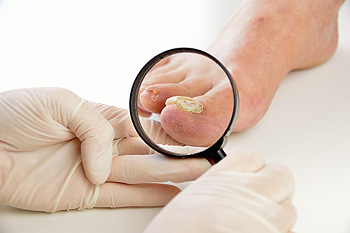 A common condition that many patients suffer from is known as toenail fungus. There are noticeable symptoms that exist with this condition and they often consist of yellowed and thickened toenails. In severe cases, the nail may separate from the nail bed, and can eventually fall off. It is caused by a fungus that lives and thrives in moist environments. These areas can include public swimming areas, shower room floors, and locker rooms. It is considered to be contagious, and measures can be implemented that may help in preventing this condition. These can consist of wearing appropriate shoes while in these types of places, and it is helpful to avoid sharing towels and shoes. There are several treatment methods that can be used for toenail fungus, and it is advised to consult with a podiatrist who can provide the best options for you.
A common condition that many patients suffer from is known as toenail fungus. There are noticeable symptoms that exist with this condition and they often consist of yellowed and thickened toenails. In severe cases, the nail may separate from the nail bed, and can eventually fall off. It is caused by a fungus that lives and thrives in moist environments. These areas can include public swimming areas, shower room floors, and locker rooms. It is considered to be contagious, and measures can be implemented that may help in preventing this condition. These can consist of wearing appropriate shoes while in these types of places, and it is helpful to avoid sharing towels and shoes. There are several treatment methods that can be used for toenail fungus, and it is advised to consult with a podiatrist who can provide the best options for you.
If left untreated, toenail fungus may spread to other toenails, skin, or even fingernails. If you suspect you have toenail fungus it is important to seek treatment right away. For more information about treatment, contact one of our podiatrists of The Podiatry Center, PC. Our doctors can provide the care you need to keep you pain-free and on your feet.
Symptoms
- Warped or oddly shaped nails
- Yellowish nails
- Loose/separated nail
- Buildup of bits and pieces of nail fragments under the nail
- Brittle, broken, thickened nail
Treatment
If self-care strategies and over-the-counter medications does not help your fungus, your podiatrist may give you a prescription drug instead. Even if you find relief from your toenail fungus symptoms, you may experience a repeat infection in the future.
Prevention
In order to prevent getting toenail fungus in the future, you should always make sure to wash your feet with soap and water. After washing, it is important to dry your feet thoroughly especially in between the toes. When trimming your toenails, be sure to trim straight across instead of in a rounded shape. It is crucial not to cover up discolored nails with nail polish because that will prevent your nail from being able to “breathe”.
In some cases, surgical procedure may be needed to remove the toenail fungus. Consult with your podiatrist about the best treatment options for your case of toenail fungus.
If you have any questions, please feel free to contact our office located in Millburn, NJ. We offer the newest diagnostic and treatment technologies for all your foot care needs.
Read more about Toenail Fungus
Blog Archives
- April 2025
- March 2025
- February 2025
- January 2025
- December 2024
- November 2024
- October 2024
- September 2024
- August 2024
- July 2024
- June 2024
- May 2024
- April 2024
- March 2024
- February 2024
- January 2024
- December 2023
- November 2023
- October 2023
- September 2023
- August 2023
- July 2023
- June 2023
- May 2023
- April 2023
- March 2023
- February 2023
- January 2023
- December 2022
- November 2022
- October 2022
- September 2022
- August 2022
- July 2022
- June 2022
- May 2022
- April 2022
- March 2022
- February 2022
- January 2022
- December 2021
- November 2021
- October 2021
- September 2021
- August 2021
- July 2021
- June 2021
- May 2021
- April 2021
- March 2021
- February 2021
- January 2021
- December 2020
- November 2020
- October 2020
- September 2020
- August 2020
- July 2020
- June 2020
- May 2020
- April 2020
- March 2020
- February 2020
- January 2020
- December 2019
- November 2019
- October 2019
- September 2019
- August 2019
- July 2019
- June 2019
- May 2019
- April 2019
- March 2019
- February 2019
- January 2019
- December 2018
- November 2018
- October 2018
- September 2018
- August 2018
- July 2018
- June 2018
- May 2018
- April 2018
- March 2018
- February 2018
- January 2018
- December 2017
- November 2017
- October 2017
- September 2017
- August 2017
- July 2017
- June 2017
- May 2017
- April 2017
- March 2017
- February 2017
- January 2017
- December 2016
- November 2016
- October 2016
- September 2016
- August 2016
- July 2016
- June 2016
- May 2016
- April 2016
- March 2016
- February 2016
- January 2016
- December 2015
- November 2015
- October 2015
- September 2015
- August 2015
- July 2015
- June 2015
- May 2015
- January 2014
- December 2013
- November 2013
- October 2013
- September 2013
- August 2013
- July 2013
- June 2013
- May 2013
- April 2013
- March 2013
- February 2013
- January 2013
- December 2012
- November 2012
- October 2012
- September 2012
- August 2012
- July 2012
- June 2012
